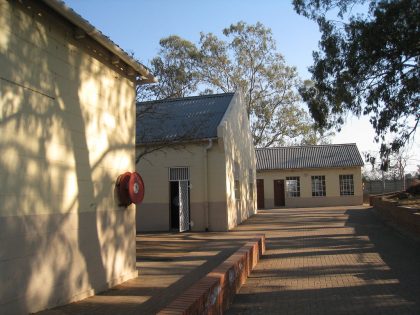
In the back and in the side
South Africa’s Human Rights Day (originally Sharpeville Day) holds a special place in the nation’s history.

South Africa’s Human Rights Day (originally Sharpeville Day) holds a special place in the nation’s history.

COVID-19 isn’t simply a medical or epidemiological crisis; it is a crisis of sovereignty.

COVID-19 presents an unprecedented threat, but a campaign by South Africa's security forces attempting to grind defenseless people into dust does not guarantee success.

Public anxiety grows over “prosperity preachers” who have dominated the religious landscape in South Africa and across the continent.

We know what will happen with this new virus, and so I cannot blissfully self-isolate.

The coronavirus pandemic places moral, economic, and political questions before us. Only two answers remain: socialism or barbarism.

The historian of South Africa on books she is reading for a new project on women and anti-apartheid activities in 1950s rural KwaZulu-Natal.

What the recent World Rugby Sevens Series global championship reveals about national rugby cultures, particularly South Africa's.

The quest to understand the real cost of gold in our lives and the fate of those trapped in the mining economy’s cage.

Breaking with the usual media conversation about the carnival that recalls Cape Town’s slave past.

With 7.9 million young South Africans out of work or with very little education or training opportunities, who looks out for their aspirations?

One major historical function of the police in South Africa remains: to manage the poor.

How Julius Malema's Economic Freedom Fighters drive political conversations in South Africa.

Recent restrictions on refugees—and the limited protests against them—reflect the degree to which many South Africans see “xenophobia” as legitimate hate.

In South Africa, the political class use foreign nationals as scapegoats to obfuscate their role in reproducing inequality. But immigrants are part of the excluded.

What might the fascination in displaying and seeing the body of “the criminal” tell us about South Africa today?

COSATU, South Africa's largest trade union federation, has a plan to simultaneously tackle climate change and unemployment.

Remembering Adelaide Tantsi Dube’s poem 'Africa: My Native Land,' first published in 1913, the same year the white government stripped black South Africans of their land.

Homage to Santu Mofokeng, photographer of quotidian black life in South Africa.

Nearly four decades later, Linda Ronstadt’s arguments against the cultural boycott - repeated in a new film - ring hollow.